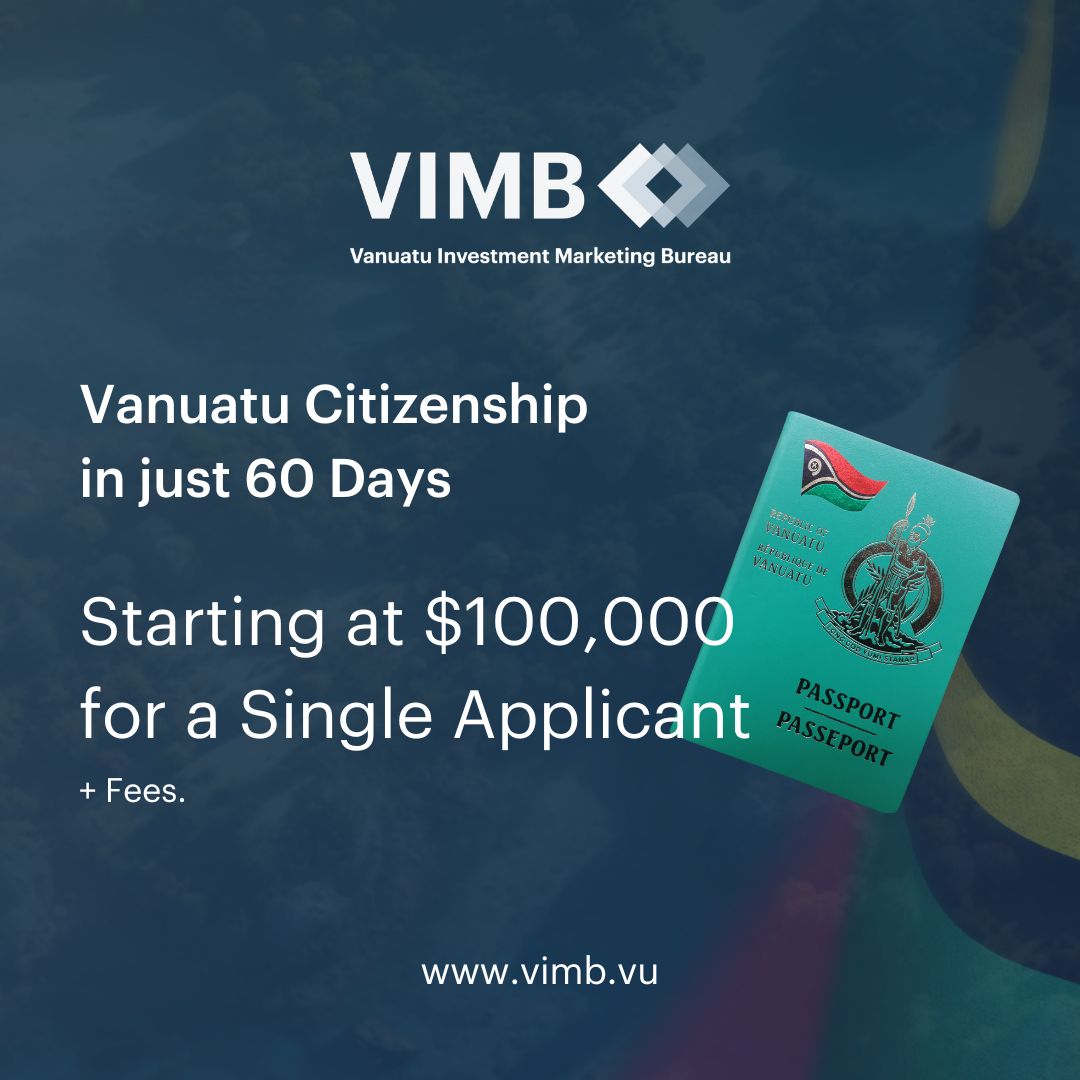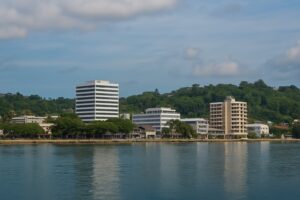Vanuatu’s Innovative Leap: Passport Investment Fuels Green Future by 2030
Vanuatu has embarked on an ambitious journey to become carbon net-zero by 2030. Achieving this goal is crucial for the country’s environmental sustainability and the well-being of its people. To support this objective, Vanuatu has aligned its hugely successful citizenship by investment (CBI) initiative with eco-friendly infrastructure development and sustainable tourism practices through the CIIP-CNO Future Fund. This article explores the details of this innovative programme and its potential impact on Vanuatu’s carbon footprint.
The Citizenship by Investment Program: A Catalyst for Sustainable Development
Vanuatu’s Citizenship by Investment program is designed to attract foreign investment in exchange for citizenship. This initiative is unique as it requires investors to contribute to the development of eco-friendly infrastructure, such as renewable energy projects through the Coconut Oil Fund (CNO). This approach not only generates revenue for the government but also assists in reducing the country’s carbon footprint.
Sustainable Tourism: A Key Component
Sustainable tourism is a pivotal aspect of Vanuatu’s citizenship by investment programme. The nation aims to promote eco-tourism practices that minimise the environmental impact of tourism while maximising its economic benefits. This includes the development of environmentally friendly accommodations, transportation systems, and tourist activities. By doing so, Vanuatu can decrease its reliance on fossil fuels and mitigate the effects of climate change.
Renewable Energy: A Path to Carbon Neutrality
The Vanuatu citizenship by investment program also prioritises the development of renewable energy sources, such as solar and wind power. This shift towards clean energy will significantly reduce the country’s dependence on fossil fuels, leading to a substantial decrease in greenhouse gas emissions. The programme encourages investors to invest in renewable energy projects, which will not only benefit the environment but also provide a sustainable source of energy for the local population.
Data:
- Citizenship by Investment (CBI) Initiative: Vanuatu’s CBI programme requires foreign investors to contribute to eco-friendly infrastructure development and sustainable tourism practices in exchange for citizenship.
- Eco-Friendly Infrastructure: The programme focuses on developing renewable energy projects, sustainable tourism facilities, and environmentally friendly transportation systems.
- Sustainable Tourism: Vanuatu aims to promote eco-tourism practices that minimise environmental impact while maximising economic benefits.
- Renewable Energy: The programme encourages investment in renewable energy sources like solar and wind power to reduce dependence on fossil fuels and mitigate climate change.
- Carbon Neutrality: Vanuatu’s goal is to achieve carbon net-zero status by 2030 through sustainable development practices.
By combining sustainable tourism practices with renewable energy development, Vanuatu’s passport programme offers a unique approach to achieving carbon net-zero status by 2030. This initiative not only benefits the environment but also provides a sustainable source of revenue for the government and promotes eco-friendly infrastructure development.











